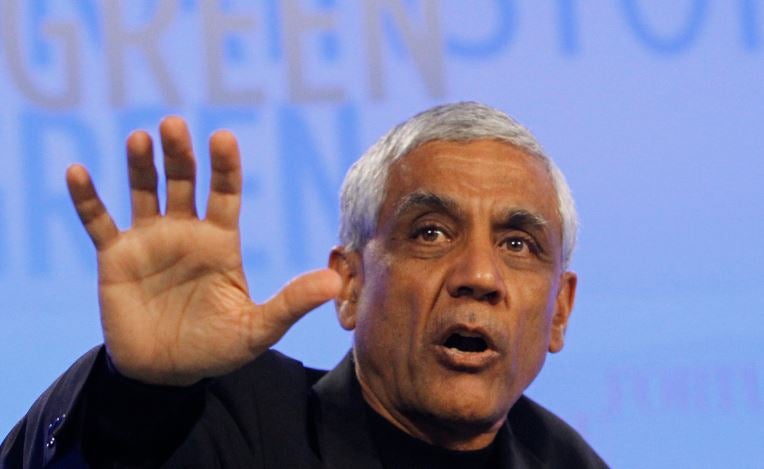Billionaire venture capitalist loses legal battle to keep public off California beach
Vinod Khosla said he would provide beach access to part of his land if the state paid him $30m (£23m)

Tech billionaire Vinod Khosla has failed in his latest legal battle to prevent public access to a beach in California. But the public will still not be able to gain entry until a second legal fight reaches a conclusion.
In 2008, the Sun Microsystems co-founder bought a 90-acre plot of land for $32.5m (£24.9m) next to a public beach in Half-Moon Bay, San Francisco.
The previous owners had allowed the public a right of way, but Mr Khosla fenced it off and hired private security guards to keep out swimmers and members of the public.
Khosla, who is reputed to be worth $1.75bn (£1.34bn), has said that he would provide beach access to part of his land if the state paid him $30m (£23m) according to SFGate.
However, the California Court of Appeal has now ruled his decision to lock a gate which allowed access to Martins Beach was a “development” for which he did not possess a permit, according to the Register.
The appeal court stated that “development” under the Coastal Act does not have to be a change or alteration in land. A change in intensity of use of the coast also constitutes development. This means Mr Khosla needs a permit for barring public access which decreases the use of the water and the coastal area.
Previous legal decisions have agreed that “the Coastal Act is to be liberally construed to accomplish its purposes and objectives” which aims at preserving and protecting the coastline from individuals who aim to fence it off from the public. The Californian law is to safeguard the public’s right to access along the beach and shores for leisure purposes.
"We are pleased that the court continues to stand with the public and to protect the Coastal Act's basic premise: the coast belongs to all Californians," said John Claussen, chair of the Surfrider Foundation, who brought the court action against Mr Khosla.
“This is not simply a win for surfers in San Mateo County," added Surfrider Foundation's legal director, Angela Howe. “This is a win for all of the beach going public that wish to enjoy California's beautiful 1,100-mile coastline."
Surfrider has tried to negotiate with Mr Khosla over an access agreement but was met with litigation, as the Silicon Valley executive vigorously defended what he believed were his property rights.
The venture capitalist gave an interview to the Mercury News saying that “there were massive lies and misrepresentation on the issues here. Surfrider and the Coastal Commission are attempting to coerce and blackmail me”.
High-net-worth landowners have been buying up California beach resorts and attempting to turn public land into private property. The California coastal commission has reported a rise in complaints from beachgoers. Private security guards are turning them away from public beaches, saying they are trespassing.